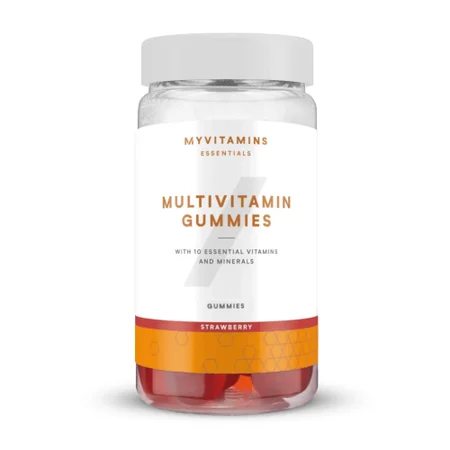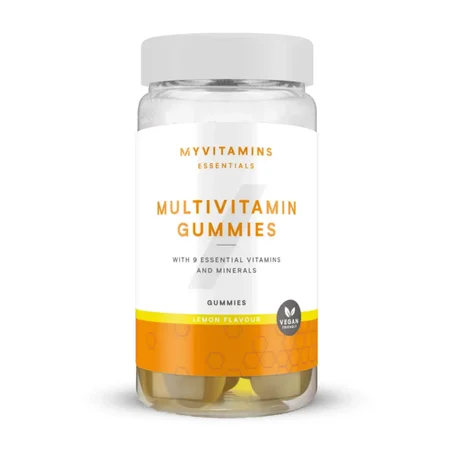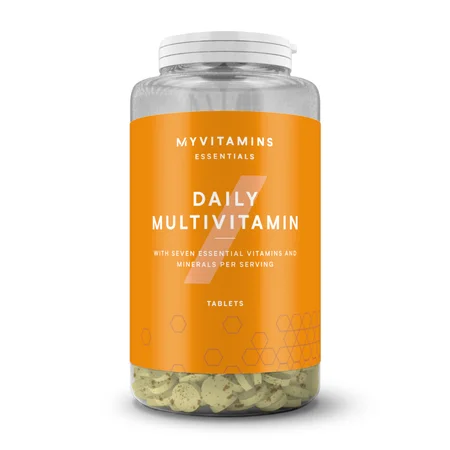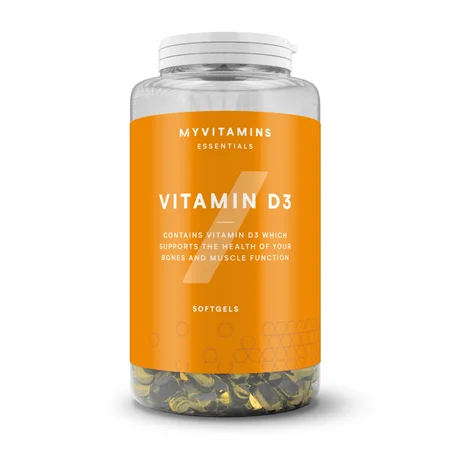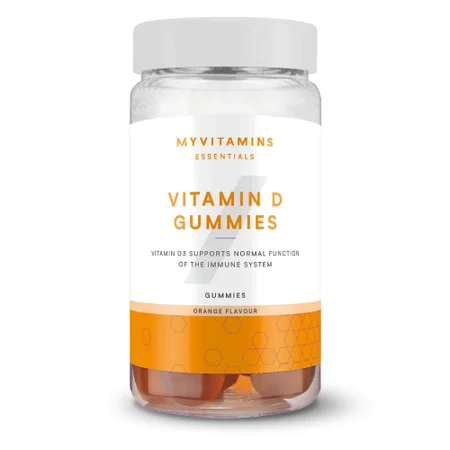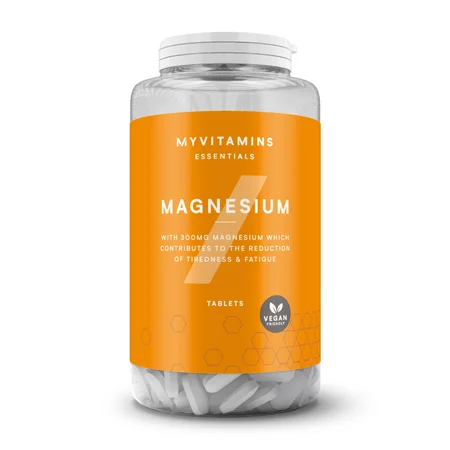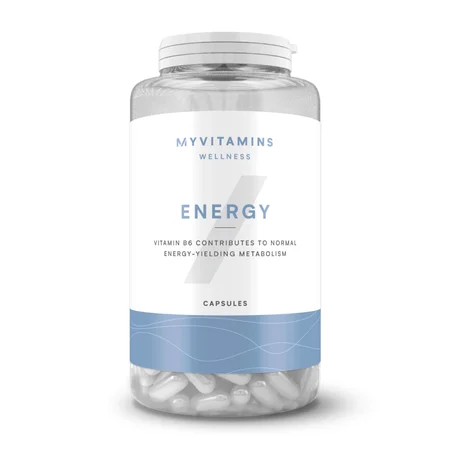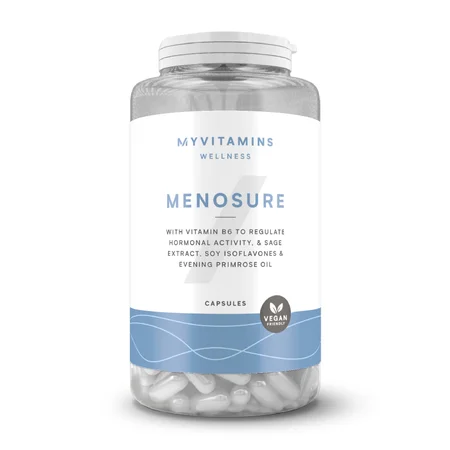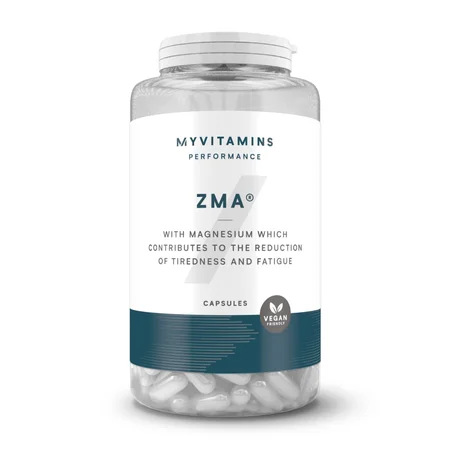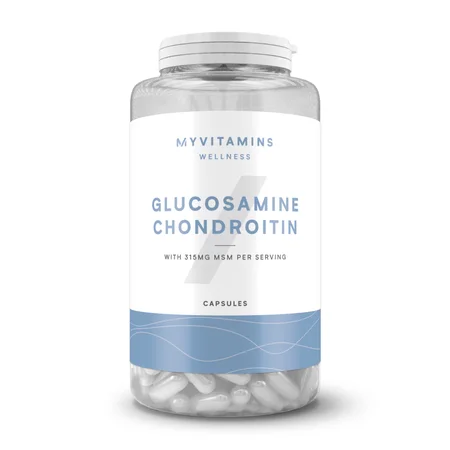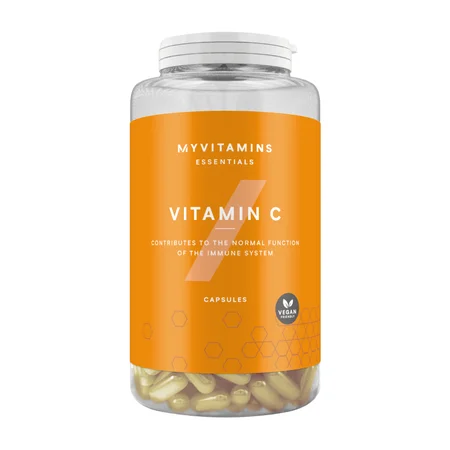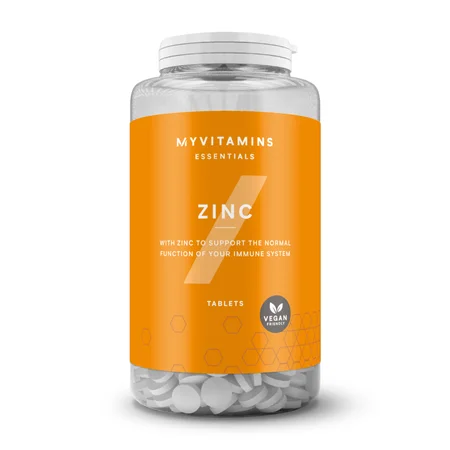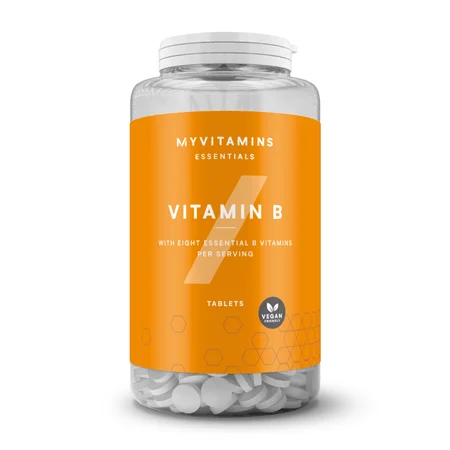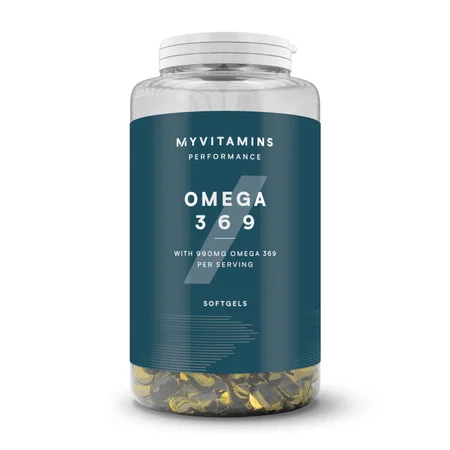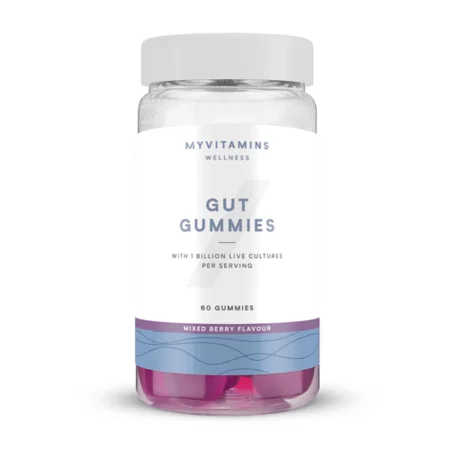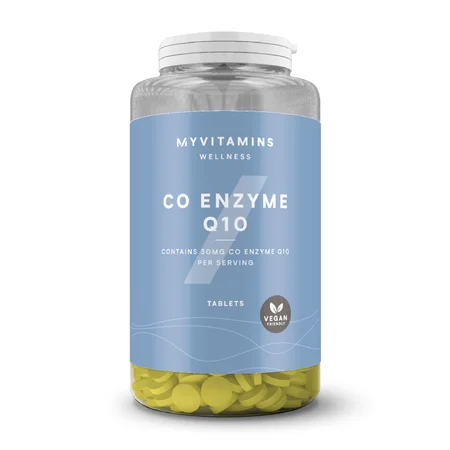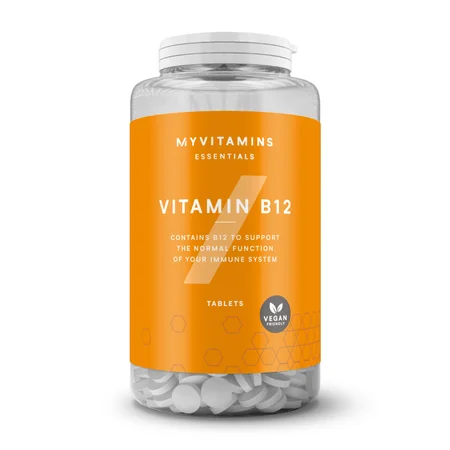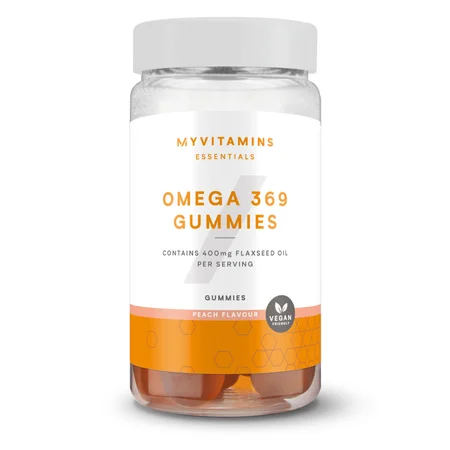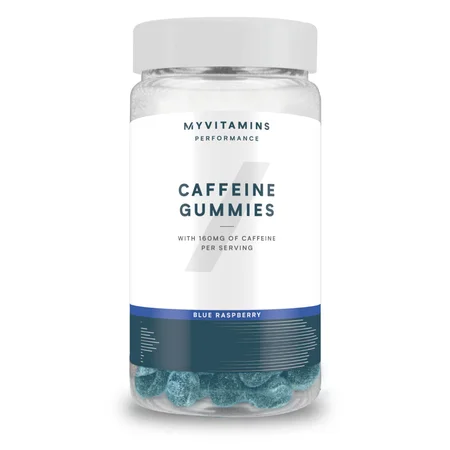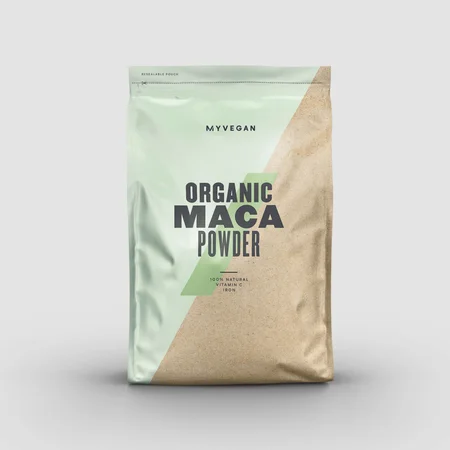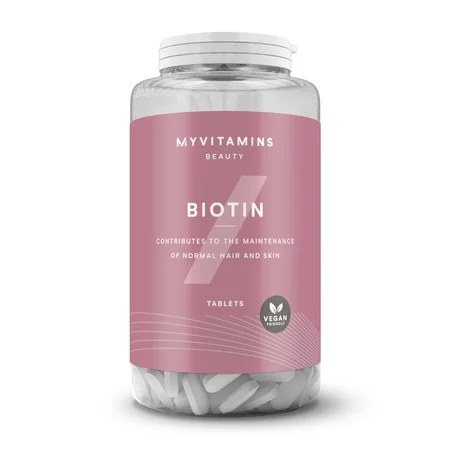The Complete Guide To Vitamins, Minerals & Supplements To Boost Your Health

Figuring out which supplements to take to optimise your health and wellbeing can feel like a bit of a minefield with so much to choose from. Think of this blog as your go-to guide for all of your burning supplement questions. The benefits of different vitamins and minerals, which supplements to take for your goals, and a guide of how to take them in the right balance. We'll take it back to basics and get into the nitty gritty, so let's dive in.
- What are vitamins, minerals and supplements
- Which vitamin and mineral supplements should I take?
- Which vitamins and minerals should not be taken together?
- FAQs
What are vitamins, minerals and supplements?
Vitamins and minerals are nutrients that are essential to health as well as for performance.
Vitamins and minerals do not contain calories, and therefore don’t provide energy in themselves, but they are involved in numerous processes that can impact energy and health.
Vitamins
Vitamins are required for growth, health and physical wellbeing . There are 13 vitamins that must be acquired through the diet.
Vitamins are classified as either water soluble or fat soluble:
Fat soluble vitamins are vitamins typically sourced through dietary fats and are absorbed and can be stored in the body (1).
Vitamin A, D, E & K are fat soluble vitamins.
Water soluble vitamins can be excreted through urine and are not stored within the body.
All B vitamins and vitamin C are water soluble.
Minerals
Minerals are elements that have many different functions in the body from forming the structure of bones and teeth to being involved in muscle contractions, nerve functions and the formation of red blood cells.
There are 20 minerals and trace elements that are essential to health and must be obtained through the diet. Examples include magnesium, calcium, zinc and phosphorus.
Supplements
Supplements are products that can enhance a diet, and often provide vitamins and minerals either in singular form or as combinations to support particular symptoms or health outcomes. For example, bone health supplements may provide calcium and vitamin D.
Supplements are designed to complement and support the diet, not to replace foods or in place of medications.

Why do we need vitamins and minerals?
- Support energy levels
- Support cognitive function
- Support mental health
- Support our immune system
- For healthy skin and hair
- For strong bones and joints
Which vitamins and mineral supplements should I take?
Vitamins for everyday
A multivitamin is a type of supplement that contains a wide range of vitamins and minerals, which can help to complement the levels of vitamins and minerals obtained from the diet.
You can check out the Myprotein multivitamin supplement range here.
Vitamins and supplements for men's health
Vitamin D
Vitamin D is a supplement that everyone (not just men) should be taking in the months of October to March if you’re living in the UK or Ireland.
This is because our body can create vitamin D from sunlight, but you’re unlikely to be getting enough sunlight to create the vitamin D you need to support your bones, muscles and immune system during the winter months.
There are two types of vitamin D; ergocalciferol or D2 which is considered ‘pre-vitamin D’ as it has to be converted to cholecalciferol which is D3.
Vitamin D2 can be found in plants and fungi, like mushrooms, and D3 is found in animal products like egg yolks and oily fish.
These supplements provide vitamin D3 and are vegan friendly.
Magnesium
Magnesium is essential for various processes within the body, with it being a cofactor for over 300 different systems (4). Magnesium is found in cereals, potatoes, fruit and veg and dairy products.
Low dietary intakes of magnesium have been associated with an increased risk of developing hypertension, which is more common in men than women (5).
A recent meta-analysis including over 20,000 people found that magnesium had a significant effect in lowering blood pressure (6).
The mechanisms for this remain unclear, but it’s expected that this effect is linked to magnesium lowering intracellular sodium and calcium, which increase blood pressure, and also plays a role in relaxing blood vessels (7,8).
However, the evidence for the use of magnesium supplementation to reduce blood pressure is mixed, with some suggestions that magnesium coupled with potassium and a reduced sodium intake may be more effective in reducing blood pressure than magnesium alone (9).
Vitamins and supplements for women's health
Iron
Iron is a mineral required for the production of haemoglobin, which is a protein found in red blood cells that carries oxygen throughout the body.
Iron-deficiency anaemia can occur when there’s insufficient iron in the diet, and this is the most common nutrient deficiency worldwide (10).
It's estimated almost 40% of women (11) have iron-deficiency anaemia, which is due to blood losses during menstruation. This is why women have higher daily iron requirements than men.
It's recommended that adult males aim for 8.7mg of iron per day, whereas females from the age of menarche — when periods start— up to pre-menopause, should aim for 14.8mg of iron per day (12).

13 Foods High in Iron
Incorporate into your diet to boost your iron consumption.
Folic Acid
Folic acid is a supplement that’s most commonly associated with pregnancy or those who are trying to conceive.
However, it's actually recommended that all women of reproductive age take a folic acid supplement, and this is because nearly half of all pregnancies are unplanned (13).
Our bodies need folate to create DNA and to support the development of the nervous system in unborn babies. There's also an increased likelihood of developing a neural tube defect, such as spina bifida, in women who don’t have enough folate pre-conception and during the early weeks of pregnancy (14).
Women need 400 micrograms of folate per day, and those wishing to become pregnant or who could become pregnant, whether planned or not, should take an additional 400 micrograms of folic acid as a supplement.
Nutrition requirements change throughout different periods of our life, but especially for women.
During pregnancy, there's an increased requirement of certain nutrients such as iron, folic acid, calcium and B vitamins.
Myvitamins pregnancy gummies provide the necessary additional folic acid as well as vitamin C, D and B12 to support immunity, bone health and energy levels. Speak to your healthcare professional regarding supplements that you may require during pregnancy.
Post menopause, bone and cardiovascular health can be impacted by the drop in oestrogen, and so supplements such as calcium and vitamin D for bone health and omega-3 oils become particularly important.
Myvitamins menosure capsules provide vitamin D to support bone health and a blend of other vitamins, minerals and herbs that can support symptoms of menopause, such as primrose oil and maca root.
Supplements for bones and joints
Calcium and magnesium
Calcium is vital for bone formation, but also plays a key role in muscle contractions and nerve functioning.
Almost all of the calcium in the body is stored in our bones and teeth, but we also require a small amount of calcium in our blood stream for daily functions.
Calcium is found in dairy products and tinned fish but there are some plant based sources of calcium like sesame seeds and tahini, almonds, green leafy vegetables and fortified white flour and bread.
Calcium isn’t a very bioavailable nutrient, meaning that not all of it's absorbed, which is why a supplement can be helpful to support overall requirements.
Magnesium is also involved in muscle contractions and nerve functions, but it helps to regulate calcium metabolism too, which makes it important to support bone health.
You can find Magnesium in food sources such as cereals, potatoes, fruit, vegetables, and dairy products.
The RNI for calcium is 700mg for adults but is higher in some cases such as if a woman is breastfeeding or if they have coeliac disease, as the absorption of nutrients can be impaired (15).
Myvitamins Calcium & Magnesium tablets provide 100% of the RNI of both calcium and magnesium.

10 Foods High In Magnesium
Peanut butter on toast is definitely on the menu.
Vitamin D
Vitamin D enhances the absorption of calcium. These softgels are a convenient way to ensure you’re getting your vitamin D throughout the winter months!
Vitamin K
Vitamin K, found in broccoli, spinach and vegetable oils, is important for blood clotting but it also plays an important role in bone health.
It helps to regulate bone resorption and formation (16), and low levels of vitamin K are associated with reduced bone density (16,17).
The recommendation for vitamin K is 1 microgram (μg) per kg body weight, and these tablets provide 100 ug.
Glucosamine Chondrotin Capsules
Glucosamine and chondroitin are naturally found in the body and support the joints and cartilage in our body (18).
Over time, cartilage can deteriorate and joints that take a lot of impact, such as those who lead active lifestyles, may begin to feel the effects of this (19) as they age.
Shellfish is the main dietary source of glucosamine, so these supplements are a convenient way to keep glucosamine and chondroitin levels high.
Vitamins and supplements for immunity
Vitamin B6
Vitamin B6, also referred to as pyridoxine, is important for the production of immune cells and antibodies (20), with a deficiency of this vitamin linked with a reduced immune response (21) and increased susceptibility to viral infections (22).
Vitamin B6 is found in many foods including poultry, pork, soya, peanuts, oats, milk and some fortified breakfast cereals.
This supplement provides a range of B vitamins in one convenient tablet.
Vitamin C
Vitamin C supports our immunity as it helps to regulate oxidative stress and inflammation in the body.
A deficiency of vitamin C has been associated with increased risk of infection (23).
Evidence has also illustrated that regular supplementation of vitamin C can reduce the duration of colds (23, 24) and considering vitamin C is a water soluble vitamin, meaning that excess is excreted, it's considered safe as a supplement (25).
You can get vitamin C from most fruits and vegetables such as oranges and citrus fruits, peppers, kiwis, berries and tomatoes, and daily multivitamin tablets provides vitamin C to support your immune system.
Zinc
Zinc is a mineral that’s vital for the function of the immune system and for wound healing.
It's important for the production and maintenance of cells including immune cells such as monocytes, macrophages and natural killer cells (26).
Zinc supplementation has been linked with a reduced duration of colds (27). One study found that supplementing with >75mg/day zinc within 24 hours of the onset of cold symptoms significantly reduced the duration of the cold (28).
Dietary sources of Zinc include red meat, poultry as well as seafood, nuts, wholegrains and dairy. And of course it can be supplemented.
Supplements for the brain
Omega-3
Omega-3 is a type of fatty acid that’s essential for brain function throughout your life.
It's thought to reduce inflammation and oxidative stress in the brain as well as supporting neurotransmitter functioning.
There are three main omega-3 fatty acids; ALA, EPA and DHA.
ALA is found in plant based fats like walnuts and chia seeds, as well as their oils and olive oil.
ALA must be converted into EPA or DHA in the body in order for it to be beneficial for functions other than providing energy. However, our bodies are not very efficient at this, so only a small amount of EPA or DHA is actually gained through this conversion process.
ALA is typically one of the most common omega-3 fatty acids in our diets, which is why it's encouraged to include oily fish in our diets twice per week as these contain more bioavailable sources of omega-3, or you can supplement.
Ashwaghanda
Ashwagandha is classified as an adaptogen, which means it helps the body to adapt and cope with stress. It can be taken as a supplement to support mental wellbeing.
In a study published in the Indian Journal of Psychological Medicine, they observed the impact of ashwagandha root extract on subjects with chronic stress.
They reported that cortisol decreased by almost 28% versus 7.9% for the placebo (29) group, and also found a significant reduction in depression and anxiety scores.
In the placebo group, there was actually a slight increase in anxiety, and a small decrease in depression and stress.
Similar findings were also observed in a more recent study in 2019, where those who took ashwagandha supplements for 8 weeks had significantly reduced perceived stress levels as well as cortisol levels in comparison to the placebo group (30).
Probiotic
There's a lot of research into how probiotics may be able to support mental wellbeing with some studies finding that probiotics may be able to boost mood and cognitive function as well as lower stress and anxiety (31, 32).
These gut gummies contain probiotic bacteria to provide you with an array of benefits.
Vitamins and supplements for energy and focus
Vitamin B12
Vitamin B12 plays a vital role in maintaining energy levels, supporting the nervous system and is important for the production of red blood cell production.
Deficiencies of vitamin B12 can cause B12 deficiency anaemia, which means that tissues and organs don’t get enough oxygen and this can cause symptoms like weak muscles and tiredness (33).
Vitamin C
Vitamin C enhances the absorption of iron, which helps to prevent fatigue. It's also important to support energy production within the body, and it's thought that deficiencies can contribute to weakness and muscle aches (34) .
CoQ10
Coenzyme Q10 (CoQ10) is a compound that helps generate energy in your cells. With age, your body produces less of it, but you can also get it from supplements or food.
Supplements for sports
Creatine
Creatine is a compound made within our body and is found naturally within our muscles. It's considered an amino acid, but it's not used to make protein.
The cells in our body use a form of energy known as ATP, and creatine helps to provide energy within the muscles.
When it comes to exercise, the muscles have a small amount of ATP within them and this is used for explosive movements, such as sprinting, weight-lifting and other high intensity bouts of exercise.
Creatine has been extensively studied and can enhance strength improvements, muscle mass growth and also sprint performance. It’s also been shown to support exercise recovery, as it can reduce muscle damage (35) and encourage greater glycogen replenishment than just carbohydrate alone (36).
Creatine can be taken in supplement form as a creatine monohydrate powder or a tablet, and the current recommendations are to take 3-5g of creatine per day (37). Continuous supplementation can increase the amount of creatine in muscles by 20-40% (38), which can lead to a greater ability to perform at a higher intensity and recover quicker which will support strength, performance and muscle mass gain over time.
Caffeine
Caffeine is a naturally derived stimulant found naturally in foods and drinks such as coffee, tea and chocolate. Caffeine can be obtained through supplements such as pre-workouts, energy drinks and caffeine tablets, like these.
Caffeine can increase alertness and focus, and it has displayed benefits on performance in both endurance and power sports.
Evidence has suggested that caffeine can improve performance and strength through mechanisms such as reducing the perception of pain (39, 40, 41, 42, 43), improving muscle soreness (44, 45), and can ‘spare’ the use of carbohydrate during exercise, which can increase endurance capacity (46, 47).
If you do choose to supplement with caffeine, it's recommended to take between 3-6mg per kg body weight at least 30 minutes prior to your session (48).
Omega-3
As well as their benefits for brain and heart health, studies have found that omega-3 fatty acids help to improve delayed onset muscle soreness (DOMS)- something that you may be familiar with.
One study found that 3000mg of omega-3 supplements per day reduced muscle stiffness (49), and another study found that when omega-3 fatty acids were consumed post-exercise, it resulted in reduced pain in the 48 hours following exercise (50).
Supplements for sexual health
Maca
Maca root is a plant that has been used for centuries and is believed to have aphrodisiac properties.
However, research in this area is growing and a study from 2002 suggested supplementing with maca increased sexual desire in healthy men (51).
Maca powder can be added to shakes, smoothies and juices.
Zinc
Zinc plays a role in hormone regulation, and has been linked to testosterone levels which is a key hormone for sexual health.
Supplements for beauty and wellbeing
Collagen
Collagen is a type of protein and is the most abundant in the body as it makes up the structure of cells and tissues.
Tissue repair and maintenance are supported by collagen, but it also plays a role in skin health.
The body naturally produces collagen but the production of collagen slows down when we age, which can affect the elasticity of the skin and lead to wrinkles.
In 2021, a review was published that analysed 19 different studies and found that 95% of women between the ages of 20 to 70 found that their skin hydration, elasticity and wrinkles improved when taking hydrolysed collagen in comparison to the placebo (52).
These collagen gummies provide vitamin A, which contributes to skin health and vitamin C, which supports collagen formation (53).

5 Supplements That Support The Immune System
Simple ways to support your body from the inside out.
Biotin
Biotin can support your metabolism, hair and skin health, and even contributes to psychological functions.
Eggs, legumes, liver, nuts and seeds, are all dietary sources of biotin and these capsules are a great way to ensure you’re getting enough.
Vitamins and Supplements for Vegans
Vitamin B12
Vitamin B12 is found in most animal products like meat, fish, eggs and dairy and so, like iron, those who are mostly plant based are at an increased risk of deficiency.
Some foods are fortified with B12, but it can also be taken as a supplement.
A deficiency in vitamin B12 is associated with fatigue, difficulty concentrating and a decrease in endurance for athletes, as the body’s oxygen capacity is limited when there are not enough red blood cells produced (33).
This vitamin B12 supplement is suitable for vegans.
Iron
Those who follow a plant based diet are potentially at risk of developing iron-deficiency anaemia.
Although plant based foods do contain iron, the iron is not as easily absorbed as the iron from animal sources. The iron in plant foods is known as non-haem iron, and needs to be converted to haem iron in the body to be absorbed.
Unfortunately, the body is not very efficient at this and so iron is lost in the process.
Iron supplements can cause digestive issues, so it's best to consult with your GP before beginning to take these.
Creatine
As the main source of dietary creatine is meat, fish and poultry, vegans will typically have a low muscle concentration of creatine.
Due to this naturally low baseline levels of creatine in vegans, it's thought that vegans may respond better to creatine supplementation, and exercise performance would be enhanced to a greater extent in vegans than meat eaters, however, studies are mixed as to whether creatine supplements have a greater effect (54).
Regardless, creatine supplements have a place in the diet especially for vegans.
Which vitamins and minerals should not be taken together?
Certain minerals compete for the same receptors for absorption, which means that it may be advised to avoid taking different ones together, such as copper and zinc & iron and calcium (55).
It's more likely that other compounds found in food, like tannins and other polyphenols, can interfere with the absorption of nutrients.
For example, the tannins present in tea and coffee can reduce the absorption of iron and calcium (56, 57), so for optimal absorption, try to avoid taking these supplements with your morning brew.
Frequently Asked Questions
Can you take too many supplements?
By aiming to source vitamins and minerals through the diet, there isn’t a need to consume many supplements.
Fat soluble vitamins can be stored within the body, and so toxicity is possible, which is why it's always important not to take more than the recommended dose and only supplement if necessary.
What are the most important vitamins?
There's no single vitamin that is more important than another as they are all necessarily for optimal functioning
How do I know what vitamins I need?
Certain factors can influence dietary requirements such as gender, age and health status.
Blood tests can highlight deficiencies but it's important to speak to your healthcare provider for bespoke advice.
Is it good to take a multivitamin every day?
Whilst not essential, there are cases where a multivitamin can be particularly helpful.
For example, for those who have restrictive or limited diets and may struggle to get enough of specific nutrients or athletes who have increased requirements for different vitamins and minerals, a multivitamin could help to reach daily targets.
Take home message
Vitamins and minerals are essential to our health, and supplements can help to ensure that we get sufficient amounts of these to support optimal functioning.
Supplements can also provide other beneficial nutrients and herbs that can be taken to support specific goals or address dietary concerns.
READ THESE NEXT:
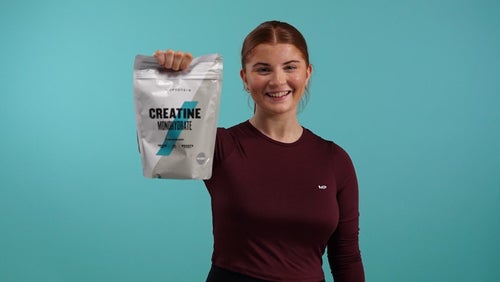
Creatine Isn't Just For Bulking
Yet more about our most talked about supplement.

1. National Research Council. (1989). Diet and health: implications for reducing chronic disease risk
2. Nettleton, J. A., Brouwer, I. A., Geleijnse, J. M., & Hornstra, G. (2017). Saturated Fat Consumption and Risk of Coronary Heart Disease and Ischemic Stroke: A Science Update. Annals of nutrition & metabolism, 70(1), 26–33. https://doi.org/10.1159/000455681
3. Jain AP, Aggarwal KK, Zhang PY. Omega-3 fatty acids and cardiovascular disease. Eur Rev Med Pharmacol Sci. 2015;19(3):441-445.
4. Rude RK. Magnesium. In: Ross AC, Caballero B, Cousins RJ, Tucker KL, Ziegler TR, eds. Modern Nutrition in Health and Disease. 11th ed. Baltimore, Mass: Lippincott Williams & Wilkins; 2012:159-75.
5. Everett, B., & Zajacova, A. (2015). Gender differences in hypertension and hypertension awareness among young adults. Biodemography and social biology, 61(1), 1–17. https://doi.org/10.1080/19485565.2014.929488
6. Han H, Fang X, Wei X, et al. Dose-response relationship between dietary magnesium intake, serum magnesium concentration and risk of hypertension: a systematic review and meta-analysis of prospective cohort studies. Nutr J. 2017;16(1):26. (2017) doi:10.1186/s12937-017-0247-4
7. Han, Hedong, Xin Fang, Xin Wei, Yuzhou Liu, Zhicao Jin, Qi Chen, Zhongjie Fan et al. “Dose-response relationship between dietary magnesium intake, serum magnesium concentration and risk of hypertension: a systematic review and meta-analysis of prospective cohort studies.” Nutrition journal 16, no. 1 (2017): 1-12.
8. Bara, Michel, and Andrée Guiet-Bara. “Magnesium regulation of Ca2+ channels in smooth muscle and endothelial cells of human allantochorial placental vessels.” Magnesium research 14, no. 1-2 (2001): 11-18.
9. Houston, Mark. “The role of magnesium in hypertension and cardiovascular disease.” The Journal of Clinical Hypertension 13, no. 11 (2011): 843-847.
10. McLean, E., Cogswell, M., Egli, I., Wojdyla, D., & de Benoist, B. (2009). Worldwide prevalence of anaemia, WHO Vitamin and Mineral Nutrition Information System, 1993-2005. Public health nutrition, 12(4), 444–454. https://doi.org/10.1017/S1368980008002401
11. Weyand AC, Chaitoff
A, Freed GL, Sholzberg M, Choi SW, McGann PT. (2023). Prevalence of Iron
Deficiency and Iron-Deficiency Anemia in US Females Aged 12-21 Years,
2003-2020. JAMA. 329(24):2191–2193. doi:10.1001/jama.2023.8020
12. Public Health
England (PHE), 2011, Scientific Advisory Committee on Nutrition (SACN) report,
Iron and Health. www.gov.uk
13. Health Service Executive (HSE). 2021. Folic Acid. Retrieved from: https://www2.hse.ie/conditions/folic-acid/#:~:text=If%20you’re%20pregnant%20or,not%20planning%20to%20get%20pregnant.
14. Dwyer, E. R.,
Filion, K. B., MacFarlane, A. J., Platt, R. W., & Mehrabadi, A. (2022). Who
should consume high-dose folic acid supplements before and during early
pregnancy for the prevention of neural tube defects?. bmj, 377.
15. British Dietetic Association (BDA). (2021). Calcium. Retrieved from: https://www.bda.uk.com/resource/calcium.html
16. Rodríguez-Olleros Rodríguez, C., & Díaz Curiel, M. (2019). Vitamin K and Bone Health: A Review on the Effects of Vitamin K Deficiency and Supplementation and the Effect of Non-Vitamin K Antagonist Oral Anticoagulants on Different Bone Parameters. Journal of osteoporosis, 2019, 2069176. https://doi.org/10.1155/2019/2069176
17. Tsugawa N, Shiraki M. Vitamin K Nutrition and Bone Health. Nutrients. 2020;12(7):1909. Published 2020 Jun 27.
doi:10.3390/nu12071909
18. Cui, P., Li, M., Yu, M., Liu, Y., Ding, Y., Liu, W., & Liu, J. (2022). Advances in sports food: Sports nutrition, food manufacture, opportunities and challenges. Food Research International, 157, 111258.
19. Marina, G. D. S., Ramu, D., Reddy, E. H., Billa, R., Kumar, N. S., & Swathi, B. (2022). Efficacy of Oral Glucosamine Sulphate and Sulfasalazine combination in the treatment of Osteoarthritis. Research Journal of Pharmacy and Technology, 15(9), 4208-4211.
20. Qian, B., Shen, S., Zhang, J., & Jing, P. (2017). Effects of vitamin B6 deficiency on the composition and functional potential of T cell populations. Journal of immunology research, 2017.
21. Stach, K., Stach,W., & Augoff, K. (2021). Vitamin B6 in Health and Disease. Nutrients,
13(9), 3229. https://doi.org/10.3390/nu13093229
22. Kumrungsee, T., Zhang, P., Chartkul, M., Yanaka, N., & Kato, N. (2020). Potential role of vitamin B6 in ameliorating the severity of COVID-19 and its complications. Frontiers in nutrition, 220
23. Hemilä H, Chalker E. Vitamin C for preventing and treating the common cold. Cochrane Database of Systematic Reviews 2013, Issue 1. Art. No.: CD000980. DOI: 10.1002/14651858.CD000980.pub4
24. Cerullo G, Negro M,
Parimbelli M, et al. The Long History of Vitamin C: From Prevention of the
Common Cold to Potential Aid in the Treatment of COVID-19. Front Immunol.
2020;11:574029. Published 2020 Oct 28. doi:10.3389/fimmu.2020.574029
25. NHS. Vitamin C.
Retrieved from: https://www.nhs.uk/conditions/vitamins-and-minerals/vitamin-c/#:~:text=Social%20Care%20advise%3F-,You%20should%20be%20able%20to%20get%20all%20the%20vitamin%20C,unlikely%20to%20cause%20any%20harm
26. Wessels, I., Maywald, M., & Rink, L. (2017). Zinc as a Gatekeeper of Immune Function. Nutrients, 9(12), 1286. https://doi.org/10.3390/nu9121286
27. Hunter J, Arentz S,
Goldenberg J, et al. Zinc for the prevention or treatment of acute viral
respiratory tract infections in adults: a rapid systematic review and
meta-analysis of randomised controlled trials. BMJ Open. 2021;11(11):e047474.
Published 2021 Nov 2. doi:10.1136/bmjopen-2020-047474
28. Singh M, Das RR.
Zinc for the common cold. Cochrane Database Syst Rev. 2013;(6):CD001364.
Published 2013 Jun 18. doi:10.1002/14651858.CD001364.pub4
29. https://journals.sagepub.com/doi/10.4103/0253-7176.106022
30. Salve, J., Pate, S., Debnath, K., Langade, D., & Langade, D. G. (2019). Adaptogenic and anxiolytic effects of ashwagandha root extract in healthy adults: a double-blind, randomized, placebo-controlled clinical study. Cureus, 11(12).
31. Naliboff, B. D., Smith, S. R., Serpa, J. G., Laird, K. T., Stains, J., Connolly, L. S., … & Tillisch, K. (2020). Mindfulness‐based stress reduction improves irritable bowel syndrome (IBS) symptoms via specific aspects of mindfulness. Neurogastroenterology & Motility, 32(9), e13828
32. Noonan, S., Zaveri, M., Macaninch, E., & Martyn, K. (2020). Food & mood: a review of supplementary prebiotic and probiotic interventions in the treatment of anxiety and depression in adults. BMJ nutrition, prevention & health, 3(2), 351–362. https://doi.org/10.1136/bmjnph-2019-000053
33. Krzywański, J., Mikulski, T., Pokrywka, A., Młyńczak, M., Krysztofiak, H., Frączek, B., & Ziemba, A. (2020). Vitamin B12 status and optimal range for hemoglobin formation in elite athletes. Nutrients, 12(4), 1038.
34. https://www.ncbi.nlm.nih.gov/pmc/articles/PMC7019700/
35. Cooke, M. B., Rybalka, E., Williams, A. D., Cribb, P. J., & Hayes, A. (2009). Creatine supplementation enhances muscle force recovery after eccentrically-induced muscle damage in healthy individuals. Journal of the International Society of Sports Nutrition, 6(1), 13
36. Nelson, A. G.,Arnall, D. A., Kokkonen, J. O. K. E., Day, Randy., & Evans, Jared. (2001).
Muscle glycogen supercompensation is enhanced by prior creatine
supplementation. Medicine and science in sports and exercise, 33(7), 1096-1100.
37. Antonio, J., Candow, D. G., Forbes, S. C., Gualano, B., Jagim, A. R., Kreider, R. B., … & Ziegenfuss, T. N. (2021). Common questions and misconceptions about creatine supplementation: what does the scientific evidence really show?. Journal of the International Society of Sports Nutrition, 18(1), 13.
38. Kreider, R. B., Kalman, D. S., Antonio, J., Ziegenfuss, T. N., Wildman, R., Collins, R., … & Lopez, H. L. (2017). International Society of Sports Nutrition position stand: safety and efficacy of creatine supplementation in exercise, sport, and medicine. Journal of the International Society of Sports Nutrition, 14(1), 18.
39. Astorino, T. A., Terzi, M. N., Roberson, D. W., & Burnett, T. R. (2011). Effect of caffeine intake on pain perception during high-intensity exercise. International journal of sport nutrition and exercise metabolism, 21(1), 27-32
40. Cappelletti, S.,
Daria, P., Sani, G., & Aromatario, M. (2015). Caffeine: cognitive and
physical performance enhancer or psychoactive drug?. Current neuropharmacology,
13(1), 71-88.
41. Grgic, J., &Mikulic, P. (2017). Caffeine ingestion acutely enhances muscular strength and power but not muscular endurance in resistance-trained men. European journal of
sport science, 17(8), 1029-1036.
42. Kim, J., & Lee,
J. (2014). A review of nutritional intervention on delayed onset muscle
soreness. Part I. Journal of exercise rehabilitation, 10(6), 349.
43. Baratloo, A.,
Rouhipour, A., Forouzanfar, M. M., Safari, S., Amiri, M., & Negida, A.
(2016). The role of caffeine in pain management: a brief literature review.
Anesthesiology and pain medicine, 6(3).
44. Chen, H. Y., Chen,
Y. C., Tung, K., Chao, H. H., & Wang, H. S. (2019). Effects of caffeine and
sex on muscle performance and delayed-onset muscle soreness after
exercise-induced muscle damage: a double-blind randomized trial. Journal of
applied physiology (Bethesda, Md. : 1985), 127(3), 798–805. https://doi.org/10.1152/japplphysiol.01108.2018
45. Hurley, C. F.,Hatfield, D. L., & Riebe, D. A. (2013). The effect of caffeine ingestion on
delayed onset muscle soreness. The Journal of Strength & Conditioning
Research, 27(11), 3101-3109.
46. Graham, T. E.,
Battram, D. S., Dela, F., El-Sohemy, A., & Thong, F. S. (2008). Does
caffeine alter muscle carbohydrate and fat metabolism during exercise?. Applied
Physiology, Nutrition, and Metabolism, 33(6), 1311-1318.
47. Laurent, D., Schneider, K. E., Prusaczyk, W. K., Franklin, C., Vogel, S. M., Krssak, M., … & Shulman, G. I. (2000). Effects of caffeine on muscle glycogen utilization and the neuroendocrine axis during exercise. The Journal of Clinical Endocrinology & Metabolism, 85(6), 2170-2175.
48. ISSN Position stand; Guest, N.S., VanDusseldorp, T.A., Nelson, M.T. et al. International society of sports nutrition position stand: caffeine and exercise performance. J Int Soc Sports Nutr 18, 1 (2021). https://doi.org/10.1186/s12970-020-00383-4
49. O’Bryan, K. R., Doering, T. M., Morton, R. W., Coffey, V. G., Phillips, S. M., & Cox, G. R. (2020). Do multi-ingredient protein supplements augment resistance training-induced gains in skeletal muscle mass and strength? A systematic review and meta-analysis of 35 trials. British journal of sports medicine, 54(10), 573-581.
50. Cintineo, H. P.,
Arent, M. A., Antonio, J., & Arent, S. M. (2018). Effects of protein
supplementation on performance and recovery in resistance and endurance
training. Frontiers in nutrition, 83
51. Gonzales GF, Córdova A, Vega K, et al. Effect of Lepidium meyenii (MACA) on sexual desire and its absent relationship with serum testosterone levels in adult healthy men. Andrologia. 2002;34(6):367-372. doi:10.1046/j.1439-0272.2002.00519.x
52. de Miranda, R. B., Weimer, P., & Rossi, R. C. (2021). Effects of hydrolyzed collagen supplementation on skin aging: a systematic review and meta-analysis. International journal of dermatology, 60(12), 1449–1461. https://doi.org/10.1111/ijd.15518
53. 16. Boo, Y. C. (2022). Ascorbic acid (vitamin C) as a cosmeceutical to increase dermal collagen for skin antiaging purposes: Emerging combination therapies. Antioxidants, 11(9), 1663.
54. Kaviani, M., Shaw, K., & Chilibeck, P. D. (2020). Benefits of creatine supplementation for vegetarians compared to omnivorous athletes: a systematic review. International journal of
environmental research and public health, 17(9), 3041.
55. Piskin, E., Cianciosi, D., Gulec, S., Tomas, M., & Capanoglu, E. (2022). Iron absorption: factors, limitations, and improvement methods. ACS omega, 7(24), 20441-20456.
56. Singh, P., & Prasad, S. (2023). A review on Iron, Zinc and Calcium Biological Significance and Factors Affecting Their Absorption and Bioavailability. Journal of Food Composition and Analysis, 105529.
57. Milman, N. T. (2020). A review of nutrients and compounds, which promote or inhibit intestinal iron absorption: making a platform for dietary measures that can reduce iron uptake in patients with genetic haemochromatosis. Journal of Nutrition and Metabolism, 2020.
